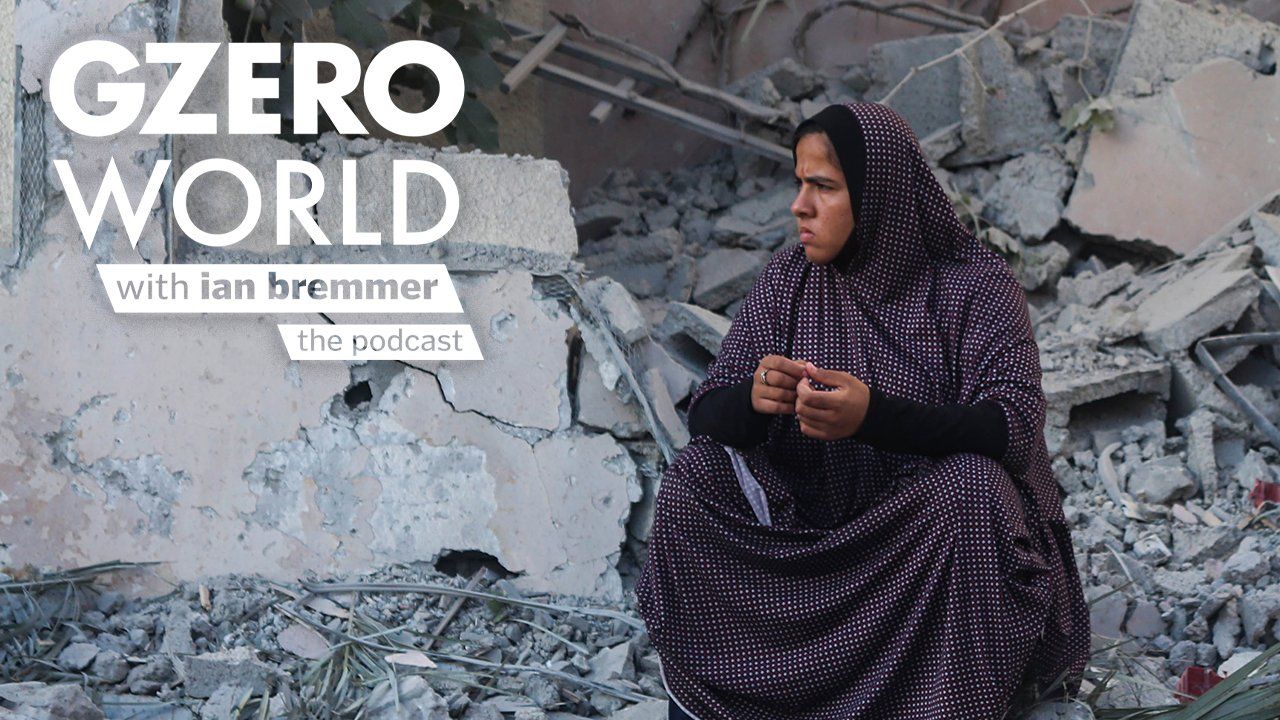GZERO World with Ian Bremmer Podcast
July 06, 2024
On the season premiere of the GZERO World Podcast, Palestinian ambassador to the United Nations Riyad Mansour joins Ian Bremmer to talk about how the war in Gaza might end and what would come next for Palestinians and Israelis alike.
Nine months into the Israel-Hamas war, is peace a possibility? Around 40,000 Palestinians and over a thousand Israelis have died, according to the Israeli army and the Hamas-run Gaza Health Ministry (as always, exact numbers are impossible to verify given limited access to the Gaza strip). According to the UN, sixty percent of Gazan homes—and over eighty percent of commercial buildings and schools—have been destroyed or damaged. The UN also warns that over a million Gazans could face the highest levels of starvation by mid-July if the fighting doesn’t end.
Joining the podcast with the Palestinian perspective is Mansour, the Permanent Observer of Palestine to the United Nations. He’s a Palestinian-American himself (the son of an Ohio steelworker) and says that this moment in the Middle East is the most significant period of transformation in his decades of representing the Palestinian people on the global stage. "There is something in the air. People want justice for the Palestinians. People want this war and this conflict to end. People want the occupation to end because it's good for Israel and it's good for the Palestinians."
Subscribe to the GZERO World Podcast on Apple Podcasts, Spotify, or your preferred podcast platform, to receive new episodes as soon as they're published.From Your Site Articles
More For You
People in support of former South Korean President Yoon Suk Yeol rally near Seoul Central District Court in Seoul on Feb. 19, 2026. The court sentenced him to life imprisonment the same day for leading an insurrection with his short-lived declaration of martial law in December 2024.
Kyodo
65: The age of former South Korean President Yoon Suk Yeol, who was sentenced to life in prison on Thursday after being found guilty of plotting an insurrection when he declared martial law in 2024.
Most Popular
In an era when geopolitics can feel overwhelming and remote, sometimes the best messengers are made of felt and foam.
Hungarian Prime Minister Viktor Orban holds an international press conference in Budapest, Hungary, January 5, 2026.
REUTERS/Bernadett Szabo/File Photo
The Hungarian election is off to the races, and nationalist Prime Minister Viktor Orbán is facing his most serious challenger in 16 years.
How people in G7 and BRICS countries think their policies will effect future generations.
Eileen Zhang
Does skepticism rule the day in politics? Public opinion data collected as part of the Munich Security Conference’s annual report found that large shares of respondents in G7 and several BRICS countries believed their governments’ policies would leave future generations worse off.
© 2025 GZERO Media. All Rights Reserved | A Eurasia Group media company.
